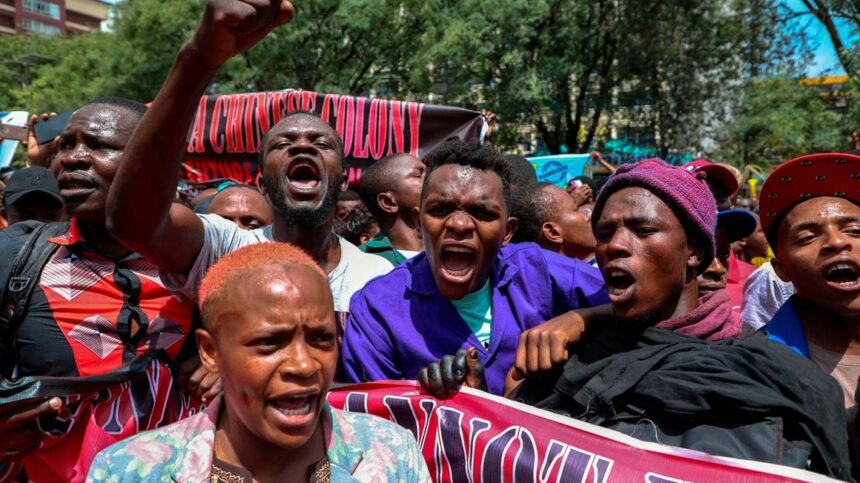Kenya’s business environment deteriorated in February, the first time in six months, leading to renewed fears of job cuts as households and businesses cut spending over rising inflation, taxation and exchange rate fears.
A monthly survey by Stanbic Bank, a member of the Standard Bank of South Africa shows a decline in business conditions in February, the first since August last year, with businesses recording declines in both output and new sales orders, leading to renewed cuts in employment and spending.
“The downturn in sales led Kenyan companies to make renewed cuts to activity, employment and purchasing in February. Output fell sharply and for the first time in four months, while input purchases fell for the first time since last August. While job losses were only mild overall, they were the strongest seen since April 2021,” according to the survey whose findings were released March 3.
Overall inflation
Kenya’s overall inflation for the month of February rose to 9.2 percent from nine percent in January sustained by rising food and fuel prices while the shilling exchange rate hit a fresh low of Ksh127 against the dollar.
Data from the Kenya National Bureau of Statistics shows that the cost of housing, water, electricity, cooking gas and fuel increased by an average of 0.4 percent between January and February while prices of most vegetables including cabbage, carrots, kale (Sukuma wiki) and tomatoes during the period under review.
According to the survey sharp falls in sales came amid reports that cost-of-living pressures and cash flow problems had stunted customer spending.
Currency weakness and reports of increased tax burdens fed through to a sharper rise in input costs, and one that was among the fastest seen since 2014.
“While some firms passed these costs on to customers, the rate of charge inflation was broadly unchanged from January and much softer than that of input prices,” the surveys says.
According to the survey customers cut spending due to high inflation and a lack of money in circulation.









